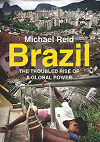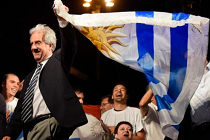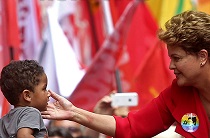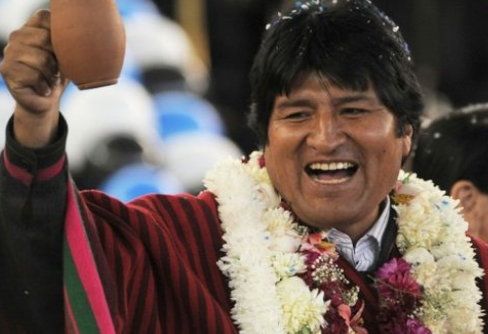Ambassador R. Viswanathan, Distinguished Fellow, Latin America Studies Programme, Gateway House, identifies the overarching trend in all the 2014 elections in South America and what they mean for the region going forward.
 Courtesy: Yale University Press
Courtesy: Yale University Press
Michael Reid's book argues that Brazil, a nation that was built by a top-down elite, is now moving to a new phase of a bottom-up approach to political and economic reform
What has been the change in perception of India with the coming of the center-right government under Narendra Modi. Ambassador Viswanathan, Distinguished Fellow, Latin American Studies provides the 2015 expectations with special reference to Latin America
 Courtesy: Getty Images
Courtesy: Getty Images
The U.S. has finally ended its outdated policy of isolating Cuba. It is a triumph for the proud and courageous Cubans who have withstood so many overt and covert destabilisation attempts by the U.S. It is also a victory for Latin America which has opposed the U.S. embargo and advocated normalization of relations with Cuba
 Courtesy: Matilde Campodonico/AP
Courtesy: Matilde Campodonico/AP
The reelection of the Left in the Uruguayan election highlights a re-consolidation of the power of the Latin American Left. The pro-poor policies of the Leftist governments in much of South America have lifted millions out of poverty. The result: the creation of a middle class that has strengthened the region’s democratic stability and created more opportunities for business
 Courtesy: Newscom.com
Courtesy: Newscom.com
The reelection of President Dilma Rousseff means continuation of the slow growth of the Brazilian economy and a lower likelihood of much-needed, major political and economic reforms. India should lower its expectations on a global partnership with Brazil
This video discusses the repercussions of the presidential elections in Brazil and the impact it will have on India
 Courtesy: Alrio.com
Courtesy: Alrio.com
The re-election of Evo Morales as Bolivia's president in the recent elections is a recognition of his success in emancipating the poor indigenous people of the country and economic management of the country. It is also an inspiration and matter of pride for the indigenous people of the whole of Latin America, as well those of the world
 Courtesy: Wikimedia
Courtesy: Wikimedia
Since none of the candidates won the required 50% majority in the Brazilian presidential elections held October 5, there will be a second round on October 26 between the centre-left President Dilma Rouseff and centre-right Aecio Neves. As of now, polls predict a Rouseff win - but like India, the Brazilian electorate is known for throwing up surprises
 Courtesy: wikimedia commons
Courtesy: wikimedia commons
Brazilian president Dilma Rouseff's bid for re-election has been ambushed in just two weeks by activist Marina Silva who is now predicted to win the October elections. If elected, Marina is likely to continue with the pro-poor policies of the current government, and she has already shown a keen interest in foreign policy. PM Modi will find Marina more proactive and forthcoming than Rouseff










